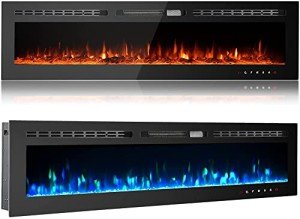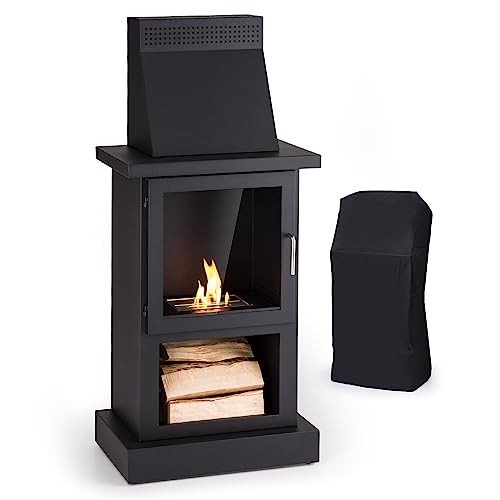McInnesLisa
McInnesLisa发表的博客
The Best Fireplaces: A Comprehensive Guide for Homeowners
Fireplaces have actually long been a beloved function in homes, offering both warmth and a welcoming atmosphere. They come in numerous styles, sizes, and fuel types, permitting homeowners to choose one that fits their individual visual and heating needs. This article explores the very best fireplaces (122.9.115.102), highlighting essential functions and factors to consider to help you make a notified decision.

Types of Fireplaces
Understanding the various types of fireplaces is crucial in picking the very best option for your home. Below are the most typically used fireplaces:
Wood-Burning Fireplaces
- Advantages: Traditional appeal, natural ambiance, and reliable heating.
- Disadvantages: Requires routine upkeep, ash disposal, and undergoes regional policies relating to emissions.
Gas Fireplaces
- Advantages: Convenient, clean-burning, and simple to operate.
- Downsides: Requires a gas line, can be more pricey to install at first.
Electric Fireplaces
- Benefits: Easy setup, low maintenance, and the best alternative for homes with children or family pets.
- Downsides: Lack the authentic feel of wood or gas flames, may not heat up large spaces effectively.
Pellet Stoves
- Benefits: Eco-friendly, effective, and supply a constant heat output.
- Downsides: Requires electricity to run, and pellet supply can be limited in some locations.
Ethanol Fireplaces
- Advantages: No chimney required, portable, and ecologically friendly.
- Disadvantages: Generally less efficient for heating.
A Comparison of Fireplace Types
| Type | Setup Cost | Running Cost | Heat Output | Maintenance | Ecological Impact |
|---|---|---|---|---|---|
| Wood-Burning | ₤ ₤ | ₤ | High | High | Moderate |
| Gas | ₤ ₤ ₤ | ₤ ₤ | Medium-High | Low | Moderate |
| Electric | ₤ | ₤ ₤ | Low | Really Low | Low |
| Pellet | ₤ ₤ | ₤ | Medium | Medium | Low |
| Ethanol | ₤ ₤ | ₤ ₤ ₤ | Low | Extremely Low | Extremely Low |
Leading Considerations When Choosing a Fireplace
When you're in the market for a new fireplace, keep the following aspects in mind to guarantee you select the best one for your home:
Purpose and Functionality: What do you desire your fireplace to do? Is it for heating or aesthetic appeals? This will guide your choice significantly.
Area Availability: Measure the location where you want to set up the fireplace. Make sure the selected type fits without overwhelming the space.
Fuel Source: Assess the availability and expense of numerous fuel sources in your location to avoid unforeseen expenses.
Setup Complexity: Some fireplaces may need significant modifications to your existing home structure.
Building Codes and Regulations: Be mindful of local laws concerning ventilation, security, and emissions, as these can influence your fireplace choice.
Visual Appeal: The style and style of a fireplace can serve as a focal point or enhance the existing decoration, so select one that enhances your home's overall aesthetic.
Benefits of a Fireplace
Including a fireplace to your home pays for numerous benefits:
Enhanced Aesthetic Appeal: A fireplace can raise the decor of any space, developing a cozy and inviting atmosphere.
Increased Home Value: A well-installed fireplace can add significant worth to your home, making it interesting potential purchasers.
Energy Efficiency: Modern fireplaces, especially gas and pellet ranges, can supply effective heating while reducing energy expenses.
Emergency Heat Source: In cases of power blackouts, a wood or gas fireplace can serve as a trusted heat source.
Social Gathering Space: Fireplaces frequently become the focal point for events, promoting warmth and comfort during friend or family' parties.
Frequently Asked Questions (FAQs)
Q: How much does it cost to install a fireplace?A: Installation expenses can differ considerably based on the kind of fireplace, structural requirements, and labor expenses. Basic electric fireplaces might cost around ₤ 300, while custom-built wood or gas fireplaces can run from ₤ 3,000 to upwards of ₤ 10,000. Q: Are electric fireplaces safe?A: Yes, electric
fireplaces are normally safe.
They do not release carbon monoxide gas and have no open flames. They often include safety functions like automated shut-off systems. Q: How often ought to I have my chimney cleaned?A: If you use a wood-burning fireplace, it's advised to have your chimney cleaned up a minimum of once a year
to avoid creosote buildup, which can result in chimney fires. Q: Can I set up a gas fireplace myself?A: It's not suggested to set up a gas fireplace without expert assistance due to the intricacies related to gas
lines, ventilation, and security guidelines. Q: What are the best types of fuel for wood-burning fireplaces?A: The best fuel choices include well-seasoned hardwoods like oak, maple, or hickory, as they burn hotter and cleaner compared to softwoods. Picking the best fireplace for your home
includes considering lots of factors, from aesthetic appeals to function and safety. Each type of fireplace has its distinct advantages and possible drawbacks.
Understanding these elements, in addition to your individual heating needs and budget plan restraints, will guide you in making a notified decision. Ultimately, a fireplace can supply not only warmth however also an abundant ambiance, changing your home into a welcoming sanctuary.
